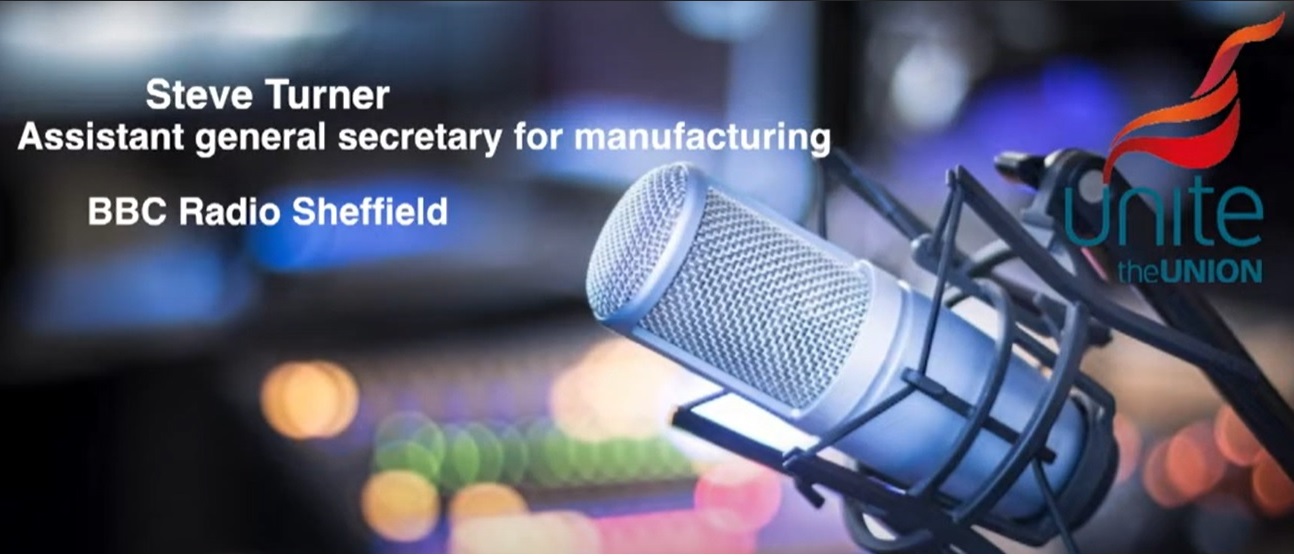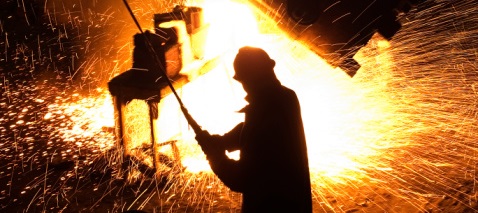‘Complete betrayal’
The UK government is failing to support the domestic steel industry through public procurement, as the government’s own figures published this week have shown.
Less than half of the steel the UK government bought for projects in the last year was procured from the UK according to  a report the government published on Tuesday (January 22).
About 42 per cent, worth nearly ÂŁ70m, of steel used in government projects was purchased from outside the UK in 2017/2018, while 43 per cent was sourced from UK firms. The remaining 14 per cent could not be traced.
Some government departments that provided figures detailing the amount and value of steel they procured from the UK and elsewhere admitted in some instances that they were able to use 100 per cent UK steel but still failed to.
For example, Highways England purchased only 20 per cent of its steel for smart motorway technology signposts on the M1 from the UK, even though it said that “100 per cent of requirement can be produced in the UK”.
Likewise, the Education and Skills Funding Agency, through the Department for Education, bought 53 per cent of the steel needed for rebar for school buildings from British suppliers – despite admitting that all the steel it needed for the £915,000 project could have been bought from UK firms.
The Ministry of Defence (MoD) spent ÂŁ32m on steel from France for its Dreadnought-class nuclear-armed submarines while it spent over ÂŁ1m on steel sourced from Belgium for a Royal Navy Astute-class submarine.
The government department also sourced some of the 11,400 tonnes of steel it used for Royal Navy Type 26 frigates from Sweden.
The MoD claimed that in all instances when it used foreign steel, it was because of the “specialist nature” of the steel products they required that they failed to use UK steel — even though UK producers have insisted if given enough time they can make the same specialist products.
Unite national officer for steel Tony Brady called the figures “deeply depressing” and said they “demonstrate once again that the government is failing to support British steel workers.
“British steel workers produce a world class product and have made countless sacrifices in order to keep production of steel in the UK,” he added. “They will consider the failure of the government to buy the products they have made, a complete betrayal.
“These figures, yet again, demonstrate why the government needs to introduce an active industrial policy to ensure that all its departments purchase UK steel, whenever possible.”
The latest figures come at a time for deep uncertainty for steelworkers as the UK faces the threat of a â€no-deal’ Brexit, just at a time when the industry is starting to recover after teetering on the brink of collapse four years ago.
One of the main concerns for the UK steel industry is that a replacement for EU tariffs on imported steel that safeguards the industry from steel dumping from countries such as China won’t be in place in time if the UK leaves the EU on March 29.
Industry body UK Steel said in a briefing on a no-deal Brexit scenario that “any gap in the coverage of necessary measures [such as anti-dumping tariffs] would very quickly be taken advantage of by foreign exporters and would undermine the UK steel sector at a critical time in its recovery.”
Unite general secretary Len McCluskey reiterated the threat of a no-deal Brexit yesterday (January 24) after he met with prime minister Theresa May, who has again failed to take a no-deal scenario off the table.
He said that all Unite members, whether they voted to leave or remain were concerned about “what would happen to their jobs and investment” in the event of no-deal.
“Every time I talk to major companies, it’s investment that is the key,” McCluskey told Sky News. “[Companies] take investment decisions years ahead before the investment going in. I can name half a dozen companies I’ve spoken to who say they’ve put investment on the back boiler.
“[No deal] cannot be allowed to happen and I don’t believe any British prime minister would allow it to happen,” he said. “It would be catastrophic and [Theresa May] has been told that from all parts.”
 Like
Like Follow
Follow


